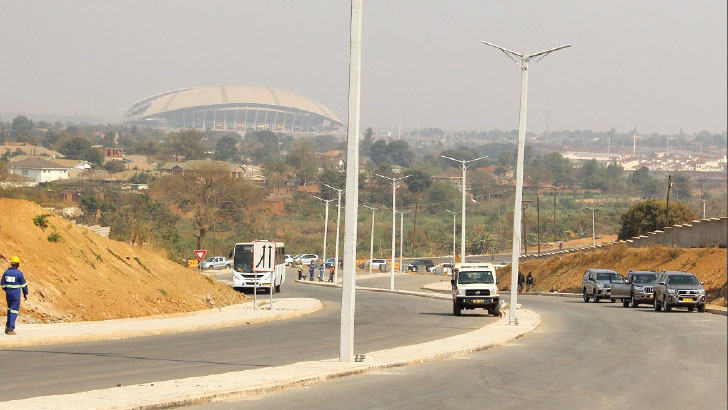Development budget Expenditure at 20%
Treasury has spent about K101.2 billion on development expenditure in the first half of the 2020/21 fiscal year, representing a paltry 20 percent of the K511.2 billion development budget, Reserve Bank of Malawi figures show.
Already, limited fiscal space has been threatening the successful implementation of development plans, hampering the country from attaining the required 30 percent of gross domestic product (GDP) development threshold.
In an interview on Tuesday, Ben Kaluwa, professor of economics at Chancellor College-a constituent college of the University of Malawi (Unima), described the low expenditure line as “a slippage”.

He said: “The development budget most of the time is under-funded. Government does not spend as much as we should on development.
“It is unlikely that it will get to the projected line because already, government is facing pressure on recurrent budget, but this has long-term implications on infrastructure. We have to make some sacrifice to make sure that we are moving in the right direction.”
On his part, Betchani Tchereni, an economics professor at The Polytechnic, another constituent college of Unima, observed that the Covid-19 pandemic has affected disbursement of the development funds both for the local and foreign financed projects.
“This then is likely to affect our own multiplier-induced sectors associated with infrastructure development. For example, jobs may not be as many as we hoped, small businesses too may be affected as they too benefit from these development projects,” he said.
In reaction, Ministry of Finance spokesperson Williams Banda said development expenditure this year has a number of new projects, which will take time to take off.
“Procurement processes take most of the time during the first half and actual implementation, which speeds up expenditure on projects implementation, usually starts in the second half. It is normal and nothing to complain about,” he said.
In the 2020/21 fiscal plan, development expenditure has been projected at K511.2 billion with K410.3 billion for foreign financed projects while K100.9 billion is for domestically financed projects.
However, in the K2.2 trillion 2020/21 National Budget, 91 percent of the total revenues have been channelled towards statutory obligations such as salaries, pensions and interest payments.
Malawi’s public investment in infrastructure has been negligible in the past two decades, averaging about 4.18 percent over a 20-year period (1998–2017), according to the World Bank.
At 4.18 percent, this is lower than in Mozambique (10.7 percent) but similar to Zambia (4.82 percent) and Tanzania (4.21 percent).
National Planning Commission director general Thomas Chataghalala Munthali observed in an earlier interview that given the country’s limited fiscal space, it is the quality of investments that matters more than the quantity.
In his budget statement, Minister of Finance Felix Mlusu indicated that the implementation of the 2020/2021 fiscal plan will be challenging as government has not been spared by the impact of the coronavirus pandemic.
World Bank figures show that since 2015/16 fiscal year, Malawi’s development expenditure has averaged 5.2 percent of gross domestic product (GDP), which is shy of the 30 percent of GDP recommended for countries to meet United Nations Sustainable Development Goals (SDGs). n





